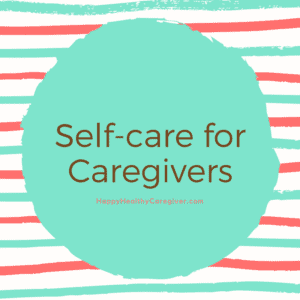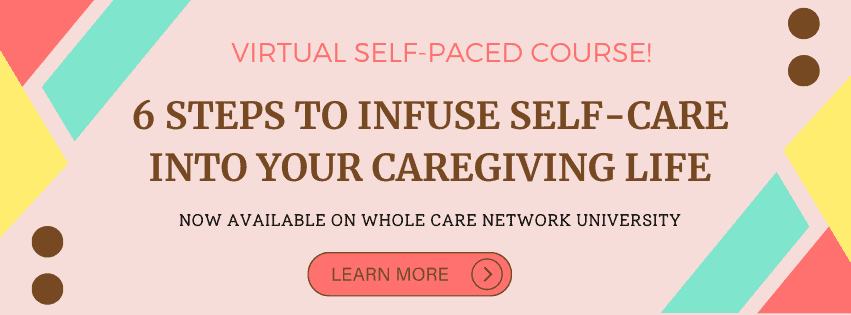a guest post written by June Duncan
One of the worst things you can do as a caregiver is forget to take care of yourself. Not only do you suffer mentally and physically, but the quality of care you provide may decline. And while your loved one is your priority right now, you have to learn to take the time to focus on yourself. This is especially important during the holidays when stress tends to trim the tree more than tinsel.

Wake up to more than hot coffee and a smile
You already know that breakfast is the most important meal of the day but you might not understand why. As it turns out, eating a balanced breakfast is about more than just breaking your nightly fast. The food we eat – or don’t eat — in the morning has long-term effects on our bodies.
In a July 2017 publication in the International Journal of Gastronomy and Food Science, Charles Spence claims that those who regularly fail to eat breakfast are at a greater risk of coronary heart disease. The Oxford University professor goes on to explain that coffee alone isn’t enough to provide the body with sustained energy to effectively get through the day. However, go ahead and pour yourself a cup, since it’s theorized that caffeine works as an antidepressant when consumed in moderation.
No time for breakfast? Check out these healthy smoothie recipes from Prevention.
Consider time with your canine
Your dog is more than your best friend. He may be the best therapist you have. Studies show that spending time with your favorite pet can reduce stress and stimulate the parts of your brain responsible for emotions. The dog experts at Rover report that being around your dog boosts your body’s levels of oxytocin, a neurotransmitter responsible for emotional stability.

Can’t decide on which breed is right for you? The American Kennel Club says these 10 breeds have the most easy-going temperaments.
A chapter a day keeps stress at bay
Reading relaxes the brain while giving it a workout all at the same time. Reading points your brain in a different direction, effectively offering it a break, even when you’re “on duty,” which is all the time when you are caring for an ill or aging loved one. Reading every day can improve your ability to think on your feet and stave off cognitive decay.
Furthermore, reading just a single chapter of a fiction novel each day has been shown to improve emotional intelligence and empathy, both traits vital in helping you have positive human interactions, which also reduce stress.
Need a good book idea? Start with these classics, each considered the greatest book of all time.
It’s good to be “kneaded”
You’re needed all the time, but sometimes you need to be kneaded. Massage therapy, according to the Mayo Clinic, may help with everything from stress to digestive disorders. There is no denying the benefits of massage for sore muscles, but the time spent receiving the massage is “forced downtime” that you probably need more than you realize.
If you can’t get away long enough to visit a masseuse, consider giving yourself the gift of a full-body, heated massage chair.
Paint yourself a bright future
Like having a massage, setting time aside for personal endeavors forces your mind to stop actively focusing on your day-to-day caregiving chores. Hobbies, including painting, playing cards, and amateur sports, are a release from the stress we all face. Participating in something outside of your obligations can even improve your decision-making abilities and elevate your self-confidence.
Like to cook? Psychologist says that baking for other people offers physiological benefits.
No matter the season, you have to take care of yourself. Take a few minutes each day to give your mind a rest. You’ll be a better caregiver and may not require as much care for yourself in the future.
June Duncan is the co-creator of Rise Up for Caregivers, which offers support for family members and friends who have taken on the responsibility of caring for their loved ones.




